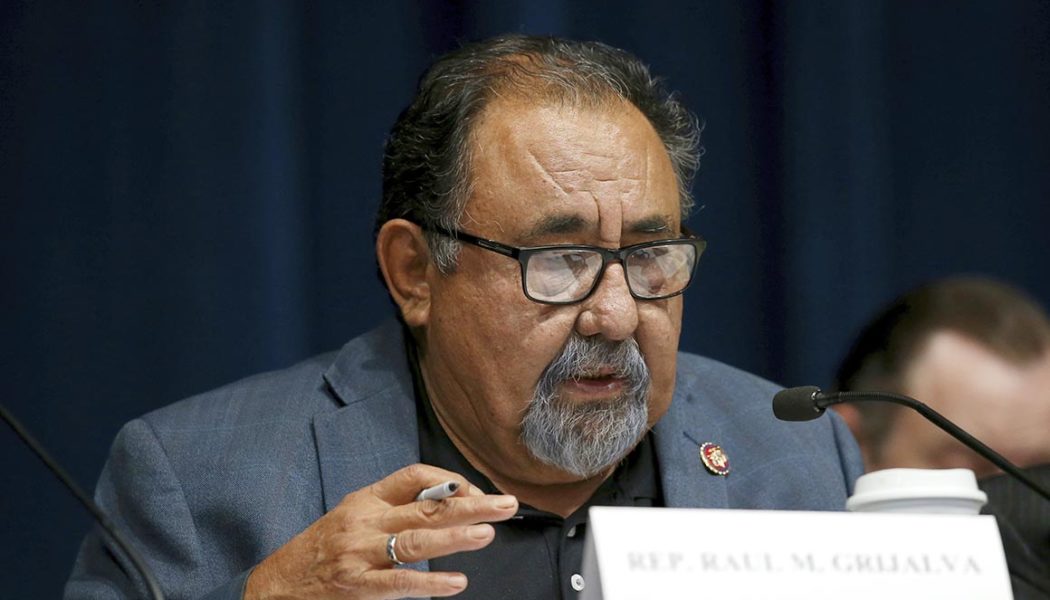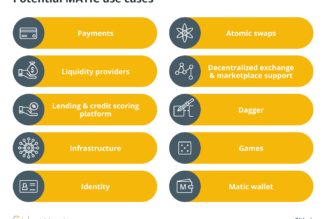
Grijavla’s planned hearing, first reported by POLITICO Playbook, calls for CEOs of oil producers EOG Resources, Devon Energy and Occidental Petroleum to explain why they have sat on thousands of unused leases for federal land rather than drilling for new supplies.
The hearing is unlikely to lead to more than political rhetoric and executives explaining the mechanics of the fuel markets, however. Oil production in the U.S. has been climbing and is expected to rise steadily throughout the year as companies respond to the high crude prices. Still, gasoline prices, which normally lag oil price movements, have seen only a modest dip from their record high of an average of $4.31 a gallon reached last week.
Grijalva’s announcement comes after House Energy and Commerce Committee Chair Rep. Frank Pallone (D-N.J.) on Wednesday called for a hearing with oil company executives about high gasoline prices.
Biden also called out the issue Wednesday, warning that “oil and gas companies shouldn’t pad their profits at the expense of hardworking Americans.” And Senate Majority Leader Chuck Schumer also has taken up the messaging, saying this week that “oil prices have actually been decreasing but the price of gas the pump has not,” and that the Senate would call industry executives to testify.
But Democratic leaders’ charges of anti-competitive behavior are being met with skepticism by analysts and even some rank-and-file Democrats who note the delay between falling oil prices and movement on the gasoline front.
“Is there normally a lag between a change in [crude oil] price and the price at the pump? Yes. The energy production system is complex and has many stages in the chain and the volatility of the price per barrel has been huge in recent weeks,” said Sen. Chris Coons (D-Del.), who is close to Biden.
Senate Energy Committee Chair Joe Manchin of West Virginia, a major energy producing state, also expressed skepticism to reporters this week.
“I have no problem bringing [oil executives] in to basically explain how the process works … we can all understand it a little better, rather than beating people up who are expected to provide the energy we need,” Manchin said Wednesday.
To fend off Republican attacks over rising inflation across the economy, Democrats have sought to blame high gasoline prices — which are particularly visible to voters — on outside factors rather than their own policies.
“They are grasping at straws,” Sen. John Barrasso of Wyoming, the top Republican of the Senate Energy Committee, told POLITICO. “They know the American people are disgusted with the way Democrats are refusing to allow American energy to be produced.”
Biden, after banning U.S. imports of Russian oil and petroleum products last week, moved to deflect responsibility for anticipated higher prices that would result from his policies, labeling a potential increase “Putin’s price hike.”
The price for Brent crude oil, the global benchmark, stood near $106 a barrel Friday after getting close to $140 a barrel after Russia first invaded Ukraine a few weeks ago. Average gasoline prices, though, were at $4.27 a gallon on Friday, near the recent record above $4.30 a gallon reached reached a few days ago.
Kevin Book, managing director of ClearView Energy Partners, a research firm, said the divergence between oil and gasoline prices can be explained by three factors: seasonality, refinery outages and the number of refined products companies have in inventory, or storage.
While it’s true global oil prices are the main determinant of retail fuel prices, Book said history doesn’t show that a decline in the crude futures market changes pump prices right away.
“It doesn’t necessarily mean manipulation or gouging,” Book said. “Oil prices go up and down. Gasoline prices do as well. They don’t always do it together. We are at a point of low inventories, seasonal changeover, and refining constraints, so it’s not likely they are going to move in lockstep right now.”
Democrats argue oil companies should eat any cost associated with lowering gasoline prices more quickly in line with oil price drops, given the extreme pinch U.S. drivers are experiencing.
Even before Russian President Vladimir Putin’s war on Ukraine, the White House in November had called on the Federal Trade Commission to investigate whether fuel manufacturers were keeping fuel prices artificially high.
Gasoline prices were already trending higher in the fall of 2021 as fuel demand picked up faster than new oil supply could come back online from the pandemic.
“The one thing the ‘Putin price hike’ and the allegations of anti-competitive behavior have in common is they say, ‘not my fault,’” Book said.
[flexi-common-toolbar] [flexi-form class=”flexi_form_style” title=”Submit to Flexi” name=”my_form” ajax=”true”][flexi-form-tag type=”post_title” class=”fl-input” title=”Title” value=”” required=”true”][flexi-form-tag type=”category” title=”Select category”][flexi-form-tag type=”tag” title=”Insert tag”][flexi-form-tag type=”article” class=”fl-textarea” title=”Description” ][flexi-form-tag type=”file” title=”Select file” required=”true”][flexi-form-tag type=”submit” name=”submit” value=”Submit Now”] [/flexi-form]









